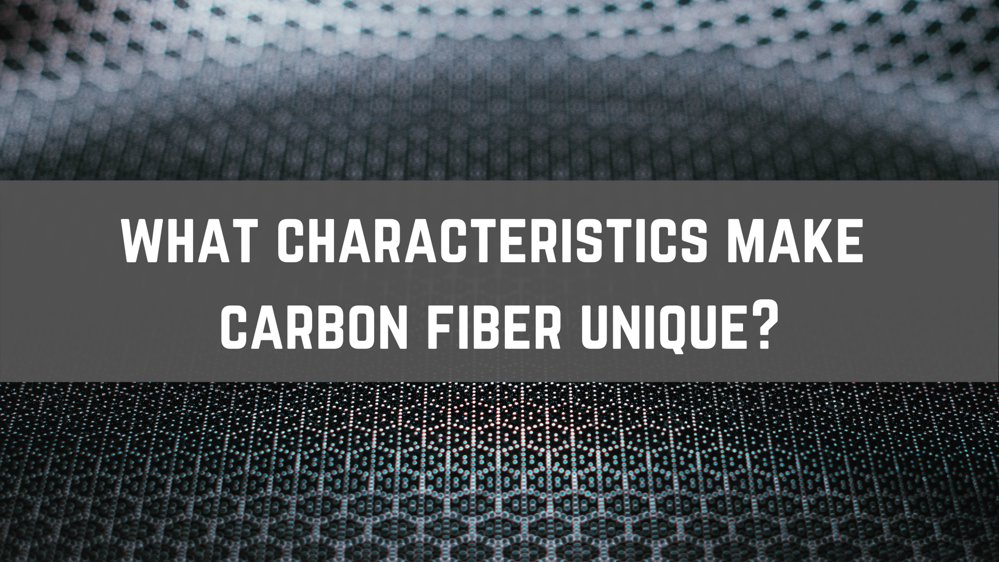What Characteristics Make Carbon Fiber Unique?
 Carbon fiber is a unique material, with applicability to many products - what makes it so special? What characteristics make it optimal for a wide range of commercial applications and consumer use?
Carbon fiber is a unique material, with applicability to many products - what makes it so special? What characteristics make it optimal for a wide range of commercial applications and consumer use?
What is Carbon Fiber?
Carbon fiber is made of long, thin strands of carbon atoms bound together in a crystalline structure, each strand thinner than a human hair.
How is carbon fiber made?
Carbon fiber is typically made by heating and drawing strands of synthetic polyacrylonitrile (PAN) fibers in an inert atmosphere in a special furnace. These carbon-rich filaments can then be woven, braided, or wound to form extremely strong, lightweight materials.
What makes carbon fiber so unique?
The answer to that question is threefold: Carbon fiber is lighter than steel, and can be up to five times stronger and 4 times as stiff. These characteristics make it ideal for many commercial and consumer applications.
Uses for Carbon Fiber
Carbon fiber is used in a wide range of products from the aerospace industry to medical devices and everything in between. More common uses for carbon fiber include:
Aircraft fuselage, wing skin, control surfaces
Ballistic armor plating
Consumer goods such as golf clubs and tennis rackets
Medical implants including replacement tendons and prosthetic limbs
Racing car bodies
Space vehicle interstage panels, nose cones, instrumentation bays, undercarriages
Characteristics and Properties of Carbon Fiber
Carbon fiber composites have a unique combination of characteristics and properties that make them ideal for many commercial and consumer uses. One reason they are so popular in the aerospace industry is their high tensile and compressive strength-to-weight ratio. Although they are very light, carbon fiber materials possess very high compressive and tensile strength. This makes them ideal for structural applications bearing high loads such as aircraft fuselage panels or even ballistic armor plating.
Another interesting characteristic of carbon fiber is its very low thermal expansion. Low thermal expansion means the fibers will not change significantly in length with changes in temperature. Carbon fiber is also known for its high fatigue resistance, which means that it can withstand cyclic loading without failing. This is ideal for the creation of lightweight structures used in robotics or consumer goods which are repeatedly subjected to repeated, cyclic stress.
Carbon fibers also have high resistance to corrosion; this makes them ideal for applications where they're exposed to harsh chemicals or environments such as chemical plants, oil refineries, semiconductor manufacturing facilities, etc.